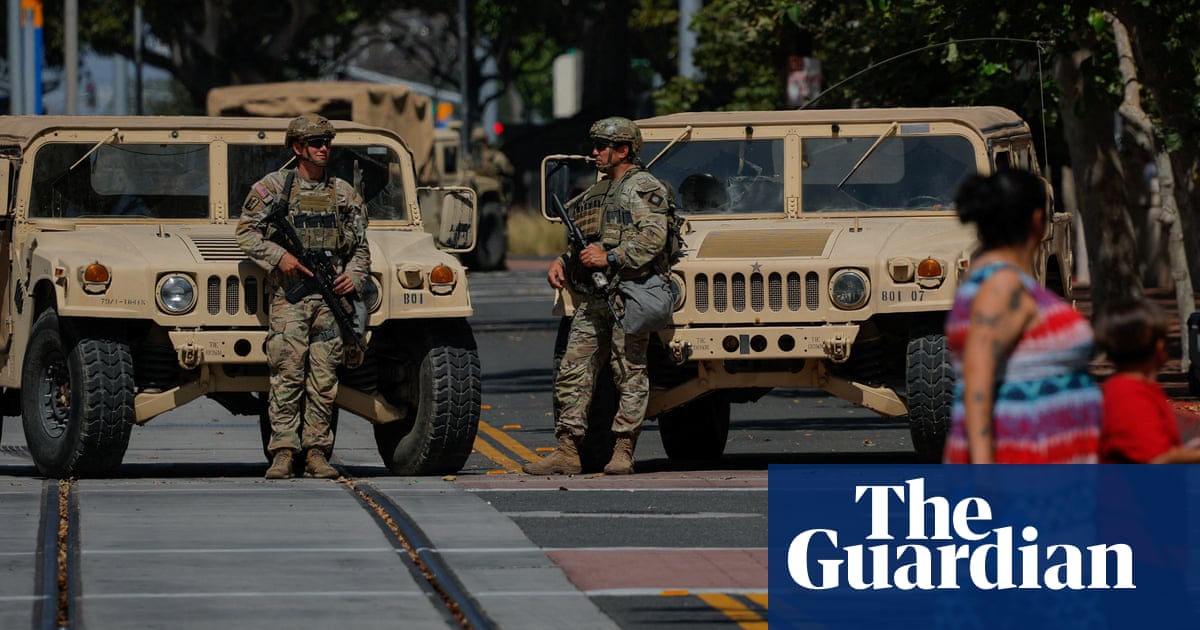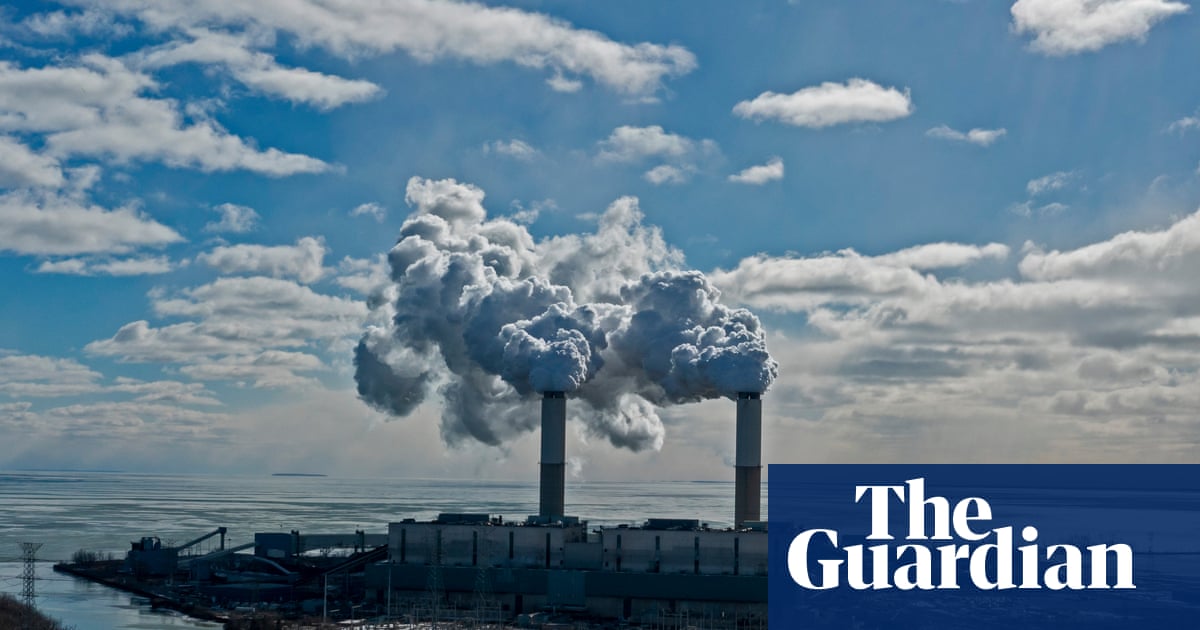From Los Angeles to London, Istanbul to Warsaw, cities are making rightwing populists angry. Their liberal elites, immigrants, net zero policies, leftwing activists, globalised businesses, expensive transport infrastructure and outspoken municipal leaders – all are provocations to populist politicians whose support often comes from more conservative, less privileged places.
Three years ago the founders of national conservatism, the transatlantic ideology on which much of modern rightwing populism is based, published a statement of principles. One of these, surprisingly little noticed at the time, declared with some menace: “In those [places] in which law and justice have been manifestly corrupted, or in which lawlessness, immorality, and dissolution reign, national government must intervene energetically to restore order.”
This month, Donald Trump’s administration identified the first American city – and almost certainly not the last – to meet these ominously broad criteria. “Los Angeles has been invaded and occupied by Illegal Aliens,” he said. It was “a city of criminals” and “socialists”, said his homeland security secretary, Kristi Noem. “Mob violence” was so disrupting the work of the federal government there, claimed his deputy chief of staff, Stephen Miller, that an “insurrection” was under way. Trump promised: “We will liberate Los Angeles and make it free, clean and safe again.”
That this “liberation” involved an ongoing, expanding and legally contentious military occupation – almost unprecedented in American history – is one indicator of how deep the populist animosity towards liberal cities and their leaders runs. Another is the recent imprisonment of the mayor of Istanbul, Ekrem İmamoğlu, a challenger to the authoritarian Recep Tayyip Erdoğan for the Turkish presidency. Another is the level of security required for London’s Labour mayor, Sadiq Khan, which is similar to that for Keir Starmer and King Charles.
The death threats, public abuse and state aggression endured by such municipal figures in supposedly free democracies – along with slightly more subtle anti-urban interventions, such as Nigel Farage’s complaint in 2014 that he could not “hear English” on an inner London train – reveal much about rightwing populism, its anxieties and fundamental values. Cities are where the future often starts, and populism is often about holding on to the past.
While conservative populism reveres, or says it reveres, the nation state, the countryside, community, social continuity and the traditional family, cities are often places of more fluid loyalties. While populism presents politics as a simple battle between “the people” and their enemies, cities, by gathering so many interest groups in one place, show that politics is in fact a more complex process: involving competition but also cooperation, contests over space and resources, and many social forces, including class, gender, sexuality, local pride and race.
More enraging and disorienting still for conservative populists, over the past 30 years many big cities have changed. Trump acknowledges this by describing Los Angeles as “once great”. As Mike Davis laid out in his pioneering histories of the city, for most of the 20th century Los Angeles was, behind its laid-back image, a highly conservative place: racially segregated, repressively policed, ruled by Republican mayors as much as Democrats. Immigration, radical activism, more progressive administrations and liberal gentrification gradually altered the city so that now, while still often shaped by inequalities, it is a stronghold of the centre left.
A similar shift has happened since the 1990s in Paris, London and many other European and North American cities. For the right, the loss of these prestigious places has been a bitter defeat – hence their insistence that they have been ruined by liberals and the left. Khan’s centrist mayoralty in London has used its very limited powers to provide free meals for primary schoolchildren and give the capital cleaner air, yet is routinely described by the rightwing press as a dogmatic and disastrous experiment.
Such caricatures of cities and their government are all the more unconvincing because they ignore the political complexity of these places. Forty percent of Londoners voted for Brexit, and many of the city’s immigrants are social conservatives. Some of its supposedly most rigid leftwing areas have, or have had, well-known rightwingers as residents: Boris Johnson and Paul Dacre, the ferociously illiberal former Daily Mail editor, used to live in Islington, north London. Dominic Cummings still does. At a Turkish greengrocer in the borough, I sometimes see the Tory MP Nick Timothy – who recently told the House of Commons: “Diversity is not our strength: it is a very serious and difficult challenge” – queueing seemingly quite happily as the shop hums with different languages, before returning to his home in the even more diverse borough of Hackney.
For all the aspects of city life that infuriate those on the right, there are others you might expect to please them: the emphasis on work, the entrepreneurialism, huge importance of property and endless hierarchies. These priorities and divides could push cities back to the right. In the 1980s, much of London elected Tory MPs. Paris had a conservative mayor, Jacques Chirac, from 1977 to 1995.
Yet a return to urban conservatism feels less likely with the right in populist mode. As the Economist magazine – not usually an ally of the municipal left – recently pointed out, city government needs “pragmatic politicos who keep … the roads free of potholes … [and] buses running on time”. The broad-brush, administratively chaotic politics of Trump, Farage and Kemi Badenoch’s Conservatives don’t seem well suited to such tasks.
Perhaps that doesn’t matter to the populists. They can go on attacking cities, in order to stir up their voters elsewhere, without actually having to run them. Meanwhile, liberal and leftwing municipal politicians keep key economic and tourism hubs functional, leaving populist national politicians such as Trump free to promote less practical policies. He may hate contemporary Los Angeles and California, but the state’s economy recently overtook Japan’s to become the world’s fourth largest – helpful for a president whose own economic plan is misfiring.
Yet the urban resistance to rightwing populism shouldn’t be written off as just playing into the enemy’s hands, as some political pessimists have done during the protests in Los Angeles. Whether on the street or from a grand mayoral office, defying today’s intolerant, reactionary populists has a value – as an act in itself and as an encouragement to others. City life can be grim and disappointing. But one of its virtues is that while trends come and go fast, rebellions are rarely forgotten.
-
Andy Beckett is a Guardian columnist

 German (DE)
German (DE)  English (US)
English (US)  Spanish (ES)
Spanish (ES)  French (FR)
French (FR)  Hindi (IN)
Hindi (IN)  Italian (IT)
Italian (IT)  Russian (RU)
Russian (RU)  7 hours ago
7 hours ago
























Comments